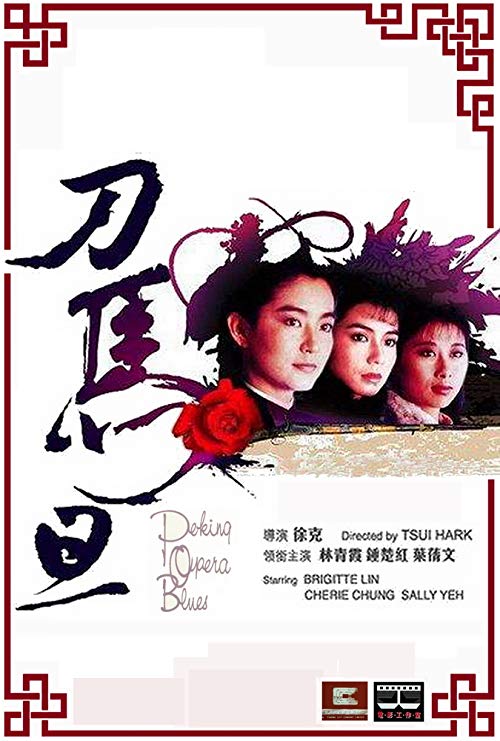


Peking opera blues soundtrack movie#
The movie comes to resemble an aesthetic ritual dedicated to the proposition that fire, blood, and wine are merely different aspects of the color red. The actions which make up the narrative of Red Sorghum-a bride jostled by the peasants carrying her to her wedding, the same bride raped in a field of sorghum, a rite of purification by burning, a punitive beating, celebratory orgies of drunkenness, a worker rebelliously pissing into a vat of newly made wine, a protracted final scene of wartime torture and massacre-are virtually undifferentiated occasions for the deployment of exquisitely modulated textures, compositions, and color combinations. (An analogous strategy can be observed in the works of contemporary Chinese poets such as Bei Dao and Duo-Duo.) Nothing, it appeared, could be more challenging in the wake of the Cultural Revolution than sharply defined pictures devoid of any obvious didactic purpose, surrounded by silence and open to multiple interpretations. 2 Their movies, such as Zhang’s Red Sorghum (1987), Chen Kaige’s Yellow Earth (1984), and Tian Zhuangzhuang’s Horse Thief (1986), were the first to break decisively with the rigid dictates of Maoist “cultural work.” Out of imposed muteness came a film language consisting of splendid images seen in isolation-an empty sky, a river basin, a weather-roughened face, a ceremonial procession-hemmed in by a strained terseness suggesting multiple layers of historical, political, and social meaning that could not be directly stated. Zhang Yimou is by now the best known of China’s “Fifth Generation” directors.
Peking opera blues soundtrack series#
While confirming that both China and Hong Kong have produced some of the most exhilarating films of the 1980s, the two series seemed to differentiate not so much two regions or political systems as two universes, universes nonetheless scheduled to merge seamlessly in five years, when Britain’s 150-year-rule over the Crown Colony finally ends. 1 The contrast could hardly have been more extreme. In a coincidence of programming in New York City a selection of the commercially most successful Hong Kong movies of the 1980s ran at the same time as a retrospective of work (some of it only marginally released in its country of origin) by the director and cinematographer Zhang Yimou, who lives in the People’s Republic and whose recent film Raise the Red Lantern was showing independently in New York.


 0 kommentar(er)
0 kommentar(er)
